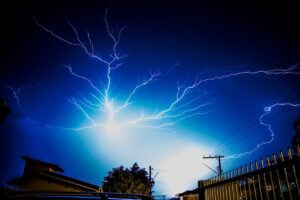You’re intelligent, so why shouldn’t your utility reader be the same?
Smart meters, now becoming popular worldwide as well as in California, Maryland, Texas, and Florida, are electronic devices that monitor and record your home’s electrical use. These models are now replacing the old analog meters that read your usage once a month only, instead capturing information about electricity consumption on a daily basis and transmitting it to your electric company.
Here in the Portland Metro Area, utility companies are growing smart meter technology and observing the ways in which it affects their clients. “Smart meter usage is increasing in the Northwest and, while our utility is years away from testing these systems locally, the technology certainly has the potential to help customers understand their energy use better, reduce wasted energy and ultimately lower their monthly electric bills,” said Sam Walker, Program Manager for Clark Public Utilities.
As this method of monitoring becomes more popular across the US, users and electric companies are now engaging in lively conversation about its pros and cons. Consider the following benefits and challenges of using intelligent utility in your home.
Benefits
No more estimated bills: In a perfect world, you pay for the energy you consumed, not what your electric company assumes you consumed. With technology that monitors your usage for you, you get charged for what you used, when you used it.
Better energy management: Its not just PGE that will view your energy use regularly. With smart meters, you can watch your output and cut down on electrical waste by monitoring what you use on a daily basis. Amped up the AC or left a light on all night? Your smart meter will show you exactly how much that extra energy is costing you, so you can weight your own options and manage your home energy expenditure as you see fit.
Part of the ongoing discussion about intelligent utility focuses on reducing overall energy costs for communities. One theory is that, by allowing users to self-monitor and billing by time-of-day, customers will automatically adjust their consumption habits in response to market prices, reducing the need for the construction of more power plants or purchase of energy from expensive source and thereby controlling the rise of electricity prices. While the debate continues, empowered self-monitoring will, at the very least, help you to keep an eye on what you use and cut back if you can.
Reduced pollution: Individual monitoring of energy usage helps the consumer cut back, saving energy. As stated above, with less energy being used, there could be less of a need for new power plants and reduced use of current plants, both of which would curb greenhouse gas emissions.
Challenges
Balancing accuracy with privacy: As with any monitoring technology, making sure that your meter is reporting your usage accurately and continues to do so is essential to accessing the benefits of this technology. However, by allowing your electric company remote access to your exact energy expenditures, you open up your personal practices to an outside eye, which makes some consumers uncomfortable.
Unsure environmental benefits: While it is estimated that users who monitor their energy expenditure will use less energy, there is always the possibility that their usage will continue at the same rate or even increase, which would negate the environmental benefits of smart meters.
Disposal: Safe, environmentally-sound disposal of old meters requires user education and updated community recycling practices to make sure that the meters do not harm the environment when their life in your home is through.
New home technologies like smart meters have the potential to make your home more cost effective and energy efficient. What’s your opinion of smart meters?


